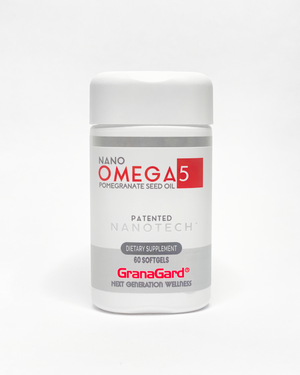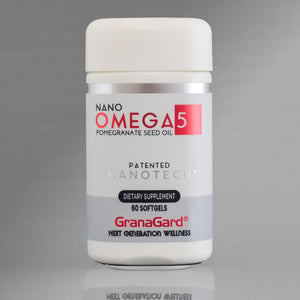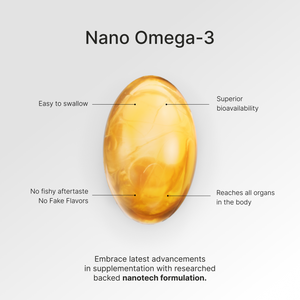Studies had already established that people with overweight and obesity had an increase in their oxidative stress, but new research suggests that this relationship is a two-way problem, meaning that oxidative stress can also cause obesity, turning the issue into a vicious circle.
Obesity as a Risk Factor
Obesity is the metabolic disease present in all age groups. Its prevalence is so high that it has reached epidemic proportions. Numerous studies have shown that the risk of developing diabetes, dyslipidemia (problems with triglycerides and cholesterol), insulin resistance, and sleep apnea is three times higher in obese people. Likewise, the relative risk of cardiovascular diseases (Benefits of Omega 3 for cardiovascular health) is twice as high in them. For a long time, the search for why obesity was a risk factor for the development of these diseases continued. The search bore fruit, and today it is precisely known that oxidative stress is the missing link.Oxidative Stress, the Connection Between Obesity and Other Diseases
Oxidative stress (Oxidative stress: myth or reality) is the imbalance between the production of free radicals and the body's antioxidant defenses, responsible for detoxifying these radicals. Oxidative stress is not generated by a single mechanism, but by the confluence of several factors. It can originate from a decrease in the body's antioxidant defenses, an increase in the generation of free radicals, or both simultaneously. The result will lead to the same outcome: a greater presence of oxidizing elements and fewer antioxidants, thus breaking the balance and tilting the scale towards oxidation.
Overweight, Obesity, and Chronic Oxidation
One way to demonstrate the presence of oxidative stress in vivo is through the detection of compounds generated when free radicals damage the body's biomolecules (lipids, proteins, carbohydrates, and DNA). Depending on the type of compound, these can be measured in blood or urine. Numerous studies from multiple research centers have shown the presence in blood and urine of substances produced by the oxidation of lipids, proteins, carbohydrates, and DNA in obese or overweight individuals, in quantities much higher than those found in individuals with normal weight (Body Mass Index < 25) Countless studies in the most important research centers have shown that oxidative stress is a cofactor for the development of cardiovascular, metabolic, neurodegenerative, and chronic degenerative diseases. Considering that in overweight and obesity there is a greater presence of free radicals and oxidizing agents (oxidative stress), this explains why obesity and overweight are risk factors for the development of cardiovascular diseases, diabetes, Parkinson's, Alzheimer's...
Losing Weight Improves Oxidative Stress

Given the evidence that overweight and obesity cause a chronic oxidation state, it was logical for science to develop further experiments to confirm it. According to this, the hypothesis was valid that: weight reduction would lead to a normalization of the levels of oxidation markers, that is, a decrease in oxidative stress. In a study conducted with 27 patients with Morbid Obesity (Body Mass Index ≥ 40, or 45 Kg above their normal weight) who had markers indicating severe oxidative stress, and also had concomitant diseases such as hypertension, diabetes (Oxidative stress can cause Type 2 diabetes), and others, they underwent bariatric surgery (surgery that helps obese people lose weight). Follow-up was carried out for 12 months after the surgical intervention, during which it was evidenced that as the patients reached a normal weight, the oxidative stress markers decreased, and concomitant diseases such as hypertension or diabetes improved (requiring fewer medications or even not needing them, by achieving normal blood pressure or blood glucose levels).
Does Oxidative Stress Cause Obesity?... The Other Side of the Coin
Apart from studies in some experimental models that have shown that despite receiving an “obesogenic” diet (which promotes obesity), antioxidants inhibit adipogenesis and fat accumulation, there are epidemiological studies that suggest similar conclusions. Various studies have described a direct relationship between low intake of natural antioxidants (What are the best antioxidant foods) and obesity.

Thus, in the ATTICA study conducted with 3,000 healthy subjects from the province of Attica (Greece), it was observed that people who did not consume the Mediterranean diet (which by its composition contains a high level of antioxidants) were at greater risk of obesity. Similar data were observed in other studies, such as those conducted in Navarra, Spain, where a follow-up of 6,300 subjects was carried out, and it was observed that lack of adherence to the Mediterranean diet led to weight gain. Other studies have also linked obesity and overweight with low plasma levels of antioxidants (low concentration of antioxidants in the blood). In one of them, a significant difference was observed in the serum levels of carotenoids (natural antioxidants) in the obese population compared to the normal population. These results coincide with studies conducted in Japan comparing the levels of these antioxidants between obese and normal weights; the obese have lower levels. Similar results have also been reported with other natural antioxidants such as vitamin C.





